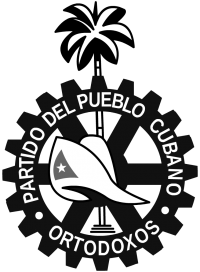Defunct political party in Laos
 |
|---|
|
|
The Youth Movement, also known as the Youth Party or Young People's Party, was a political party in Laos.
 |
|---|
The Youth Movement, also known as the Youth Party or Young People's Party, was a political party in Laos.
The party was established in May 1965 by Sisouk na Champassak. [1] It won twelve seats in the July 1965 elections. Although it supported much of the reform programme of Prime Minister Souvanna Phouma, they did not approve of his fiscal reforms, and helped vote down the 1966 budget. As a result, Phouma called early elections for January 1967. A change in the electoral law raised the minimum age for candidates from 30 to 35 and prevented many of its members from running. [1] Although the party lost its national significance, it continued to exist into the 1970s. [1]
The Christian Union is a Christian democratic political party in the Netherlands. The CU is a centrist party, maintaining more progressive stances on economic, immigration and environmental issues while holding more socially conservative positions on issues such as abortion and euthanasia. The party describes itself as "social Christian".

The Reformed Political Party is a conservative Reformed Christian political party in the Netherlands. The SGP is the oldest political party in the Netherlands existing in its present form, and has been in opposition for its entire existence. Since 1925, it has won between 1.5% and 2.5% of the votes in general elections. Owing to its orthodox political ideals and its traditional role in the opposition, the party is considered a testimonial party.

The Anti-Revolutionary Party was a Protestant conservative and Christian democratic political party in the Netherlands. The party was founded in 1879 by Abraham Kuyper, a neo-Calvinist theologian and minister. In 1980 the party merged with the Catholic People's Party (KVP) and the Christian Historical Union (CHU) to form the Christian Democratic Appeal (CDA).

Democrats 66 is a social liberal and progressive political party in the Netherlands, which is positioned in the centre of the political spectrum. It is a member of the Liberal International (LI) and the Alliance of Liberals and Democrats for Europe (ALDE).

The Moderate Party, commonly referred to as the Moderates, is a liberal-conservative political party in Sweden. The party generally supports tax cuts, the free market, civil liberties and economic liberalism. Globally, it is a full member of the International Democracy Union and the European People's Party.

Prince Souvanna Phouma was the leader of the neutralist faction and Prime Minister of the Kingdom of Laos several times.

The Unionist Party was the main centre-right political party in Scotland between 1912 and 1965.

The Estonian Reform Party is a liberal political party in Estonia. The party has been led by Kristen Michal since 2024. It is colloquially known as the "Squirrel Party", referencing its logo.

The Christian Historical Union was a Protestant Christian democratic political party in the Netherlands. The CHU is one of the predecessors of the Christian Democratic Appeal (CDA), into which it merged in September 1980.
The Reform Party, formally the New Zealand Political Reform League, was New Zealand's second major political party, having been founded as a conservative response to the original Liberal Party. It was in government between 1912 and 1928, and later formed a coalition with the United Party, and then merged with United to form the modern National Party.
The National Democratic Movement (NDM) is a conservative political party in Jamaica, led by Peter Townsend.

The National Democratic Union was a political party that existed in Brazil between 1945 and 1965. It was ideologically aligned with conservatism. During most of its existence, it was the country's second-strongest party. Its symbol was an Olympic torch and its motto was "The price of freedom is eternal vigilance".

The Party of the Cuban People – Orthodox, commonly shortened to the Orthodox Party, was a Cuban populist political party. It was founded in 1947 by Eduardo Chibás in response to government corruption and lack of reform. Its primary aims were the establishment of a distinct national identity, economic independence and the implementation of social reforms.

The Sixth Party System is the era in United States politics following the Fifth Party System. As with any periodization, opinions differ on when the Sixth Party System may have begun, with suggested dates ranging from the late 1960s to the Republican Revolution of 1994. Nonetheless, there is agreement among scholars that the Sixth Party System features strong division between the Democratic and Republican parties, which are rooted in socioeconomic, class, cultural, religious, educational and racial issues, and debates over the proper role of government.

Parliamentary elections were held in Laos on 4 May 1958, in order to elect an additional 21 seats to the enlarged National Assembly, the lower chamber of Parliament. The Lao Patriotic Front won the most seats, although the ruling National Progressive Party remained the largest party in the Assembly, holding 26 of the 60 seats. Voter turnout was 82%.
The Responsible Government Association (RGA), called the Rhodesia Party from 1923, was a political party in Southern Rhodesia. Founded in 1917, it initially advocated responsible government for Southern Rhodesia within the British Empire, as opposed to incorporation into the Union of South Africa. When responsible government was achieved in 1923, the party became the governing Rhodesia Party. It endured until 1934, when it merged with the right wing of the Reform Party to create the United Party, which remained in power for 28 years afterwards, and was itself defunct by 1965.
National Progressive Party was a political party in Laos in the 1950s. The party was founded in 1950.

The Lao People's Rally was a political party in Laos.

The Lao Neutralist Party was a political party in Laos. It published the Say Kang newspaper.

The Association of Northern Deputies was a political party in Laos.